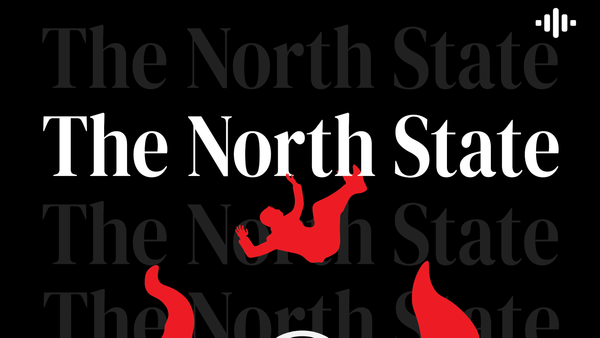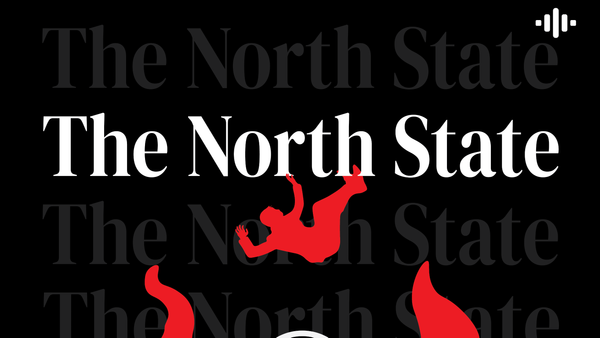Is "Access to Information" Broken in Canada?
Documents from the Ontario government were blocked to one news outlet, but not another... what gives?

In theory, our governments are supposed to be transparent and accountable to every Canadian citizen. While the vast majority of Canadians are busy with work and social lives, any could file a request for files from their federal or provincial governments. There are even step-by-step guides on how to do so. Filing the request, however, is the easy part. Actually getting the information is a whole other matter.
Difficulties on obtaining information are part of a larger trend in the country. Federally, Prime Minister Justin Trudeau and the Liberal Party have failed to implement transparency measures they promised during their 2015 election campaign. Criticism over the Trudeau government's lack of transparency have been a regular phenomenon since. But a recent story about Ontario's healthcare system brought the lack of transparency from Freedom of Information (FOI) requests to the spotlight.
On May 13, The Canadian Press released a story about the lack of personnel in Ontario health care. They reported "Ontario will need 33,200 more nurses and 50,853 more personal support workers by 2032" according to the government's own projections. The Ontario government had won the right to shield that information from a separate FOI request, filed by Global News in September 2022, at the Information and Privacy Commission of Ontario. The adjudicator's decision, made on April 24, 2024, was that disclosure of this information could "negatively impact the government's ability to manage the costs of providing health care and the overall budget on behalf of taxpayers."
But as The Canadian Press notes "the same FOI office made the information available to The Canadian Press through a separate request."
It's egregious enough that it's officially acceptable to prevent public disclosure of documents because the government would face economic consequences for the public knowing about their actions. However, the arbitrary decision to prevent that information to one outlet while providing it to another adds a baffling dimension to that frustration.
Soon after the story broke, Ontario politicians jumped on this incongruity. As Global News reported, ONDP leader Marit Stiles called the system "broken" while Ontario Green Party Leader Mike Schreiner said the province "doesn't want to be honest." This latest instance shows the arbitrary nature of keeping governmental documents private, a problem that has been endemic to Canadian systems for a while.
Indeed, this intentional fog around accessible governmental information permeates a lot of news stories. When The Maple found the Trudeau government had authorized nearly $30 million worth of military exports to Israel since October of last year, Global Affairs Canada asked for several weeks of delay. When The Maple said no, the partially redacted data was sent 25 minutes later. When asked, Global Affairs provided no explanation on whether the data was prepared in the span of 25 minutes.
Multiple news organizations have recently addressed this matter, as well. Last summer, The Globe and Mail launched Secret Canada, a project drawing attention to what they deem as the broken FOI system in Canada. Their website includes over 300,000 FOI summaries in a database, as well as stats about the average processing time for a request. Ontario tops the list with 122 days to release documents, followed by the federal government at 83 days.
More recently, the Investigative Journalism Bureau launched the Sunlight Project, a database that included over 75,000 public records requests to various organs of the Ontario government since 2014. The Investigative Journalism Foundation also launched their project Open By Default, a database of records released "under the access to information system in Canada" in March of this year.
Initiatives like these are a fantastic resource for journalists and everyday Canadians. However, the fact that multiple news outlets have felt the need to streamline the process in Canada is indicative of a wider problem.
Secret Canada's reporting has particularly shown the systemic problems with the FOI system. As Robyn Doolittle wrote in June 2023, "Government transparency and openness isn’t a nice-to-have, it’s the law. When institutions make overzealous redactions or knowingly withhold records that should be released, they’re breaking the law."
Tom Cardoso, another Globe and Mail reporter working on Secret Canada, wrote about his and Doolittle's experiences filing FOI requests. "According to our FOI request tracking spreadsheet, roughly 53 per cent of institutions responded within their legislated deadline, meaning the other 47 per cent replied outside their legal window to do so – effectively breaking the law."
If these agencies and actors are regularly breaking the law without consequences, we need to ask: Is the system actually broken?
"Broken" means that something is not working as intended. Often when criticizing capitalism, the Canadian government or geopolitical affairs, it does us well to make the distinction between the purported "intended" effect and actual effect. Stafford Beer, a professor at Manchester Business School, coined an important phrase to address this difference, "The purpose of a system is what it does." As an article in Forbes quotes him as saying "There is after all... no point in claiming that the purpose of a system is to do what it constantly fails to do."
So are the various Canadian mechanisms of information access broken? Look back to the initial story of arbitrary documents supplied to The Canadian Press but not Global News. Regarding Global's request, the Information and Privacy Commission ruled in the government's favour. They decided that to release them would affect the Ontario government negatively, specifically in the economic sense. Government information being perceived as damaging is an accepted justification for not releasing it. Additionally, this decision occurred while actors routinely break the law by not following legal requirements for access to information requests. Do they face consequences for blocking or delaying information? Apparently not.
Demonstrably, the FOI system routinely delays access to information, or outright ignores it in a significant amount of cases. That's what it does, so that's its purpose. From this analysis, there's an alternative way to view it as broken– It occasionally releases information.





